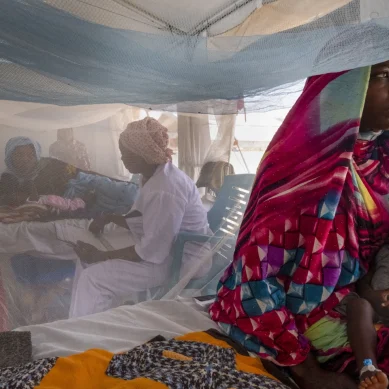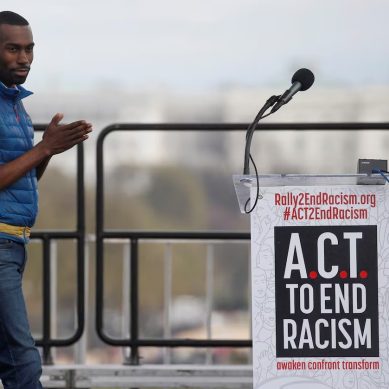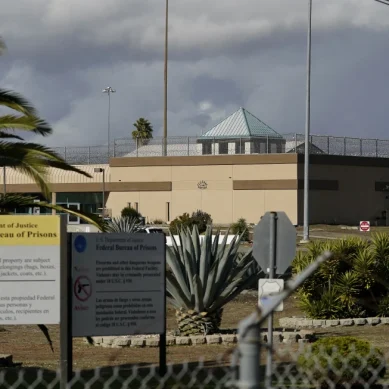
Cabo Verdean police intercepted a boat in early April suspected to be involved in international drug trafficking. The Brazilian boat contained more than 5 tons of cocaine.
The operation, which included help from the United States Drug Enforcement Agency, US Navy, Brazilian Federal Police and the National Crime Agency of the United Kingdom, resulted in the arrests of five Brazilians and two Montenegrins.
The bust underscored the reality that West Africa is a major stop on the cocaine route from South America to Europe.
“West Africa, as a region, is very vulnerable, due to corruption, unemployment, poverty,” Maria-Gorreti Loglo, African consultant for the International Drug Policy Consortium, told media. “It makes it very conducive for drug traffickers.”
Drug seizures in West Africa rose during the early 2000s before declining in 2008, indicating a drop in drug trafficking. But experts say cocaine production in Latin America has reached unprecedented levels and demand in Europe has soared.
Between 2019 and 2021, record cocaine busts were reported in Cabo Verde, the Gambia and Senegal. The quantity of drugs trafficked through the region is hard to gauge, but some experts value the cocaine business in West Africa at $2 billion annually.
The amount of cocaine seized in the region increased tenfold between 2015 and 2019, according to the United Nations.
“The recent upsurge detected since early 2019 therefore threatens once again to send shockwaves of instability through the states of this coastal ecosystem,” wrote Lucia Bird in a policy brief for the Global Initiative Against Transnational Organized Crime (GIATOC)
In West Africa, each cocaine transshipment hub has an international airport, a seaport with a container terminal and regional road networks, according to GIATOC. Shipping containers are a particularly effective way to transport drugs into West Africa, as the region has a low capacity to physically screen containers moving through its ports.
International airports in the region are useful for trafficking smaller quantities of drug and are often used by dealers from Latin America.
Two major road networks run drugs through the region. One goes through Mali, through Senegal, Guinea, Côte d’Ivoire and Burkina Faso, or the northwest border with Mauritania, before leading to Niger and Libya and, eventually, other markets.
The second road runs along the coast from Guinea-Bissau to Mauritania, where fishing boats take the drugs to Europe, according to the GIATOC study.
Many nations in the region share governance characteristics that are favourable to emerging drug hubs, such as “concentrated power, resources in very few hands, no oversight and no separate functioning judiciary,” the GIATOC study argues.
Former Bissau-Guinean Justice Minister Ruth Monteiro told the BBC in 2020 that the country was a “paradise” for drug traffickers, adding that the activities of drug traffickers also fund militant Islamist activity throughout the region. The UN agreed, reporting that drug trafficking has provided funding for insurgency and terrorist groups around the globe.
In March 2019, Bissau-Guinean authorities seized almost 800 kilograms of drugs hidden in a Senegalese-registered truck loaded with frozen fish.
“After our investigations, we were convinced the drugs were on the way to al-Qaeda in the Islamic Maghreb,” Monteiro told BBC.
In response to the region’s emergence as a hub on the cocaine route, the West African Coast initiative was launched in 2009 to enhance law enforcement and criminal justice capacity and a number of European Union-funded projects have helped strengthen port capacities against illegal trafficking, according to the GIATOC study.
AIRCOP, a UN programme, has also helped strengthen the security capacity of agencies at international airports in Latin America, the Caribbean and West Africa.
The drugs do not simply transit through the region; they also are sold in West African communities which has resulted in a rise in drug use. A restaurant owner in Guinea-Bissau told Harvard International Review that “this country is being destroyed by drugs.”
“They’re everywhere. A few weeks ago, the man who used to be my gardener offered to sell me [about 15 pounds] of cocaine.”
In Liberia an epidemic of former child soldiers addicted to drugs live on the streets of Monrovia, the capital city.
“The enemy is attacking the most brilliant children,” Joshua Blahyi, a former warlord who now works with drug-addicted youth, told Al-Jazeera. “The nation is going to be strangulated if we don’t rescue these guys.”
- A Tell /ISS report











